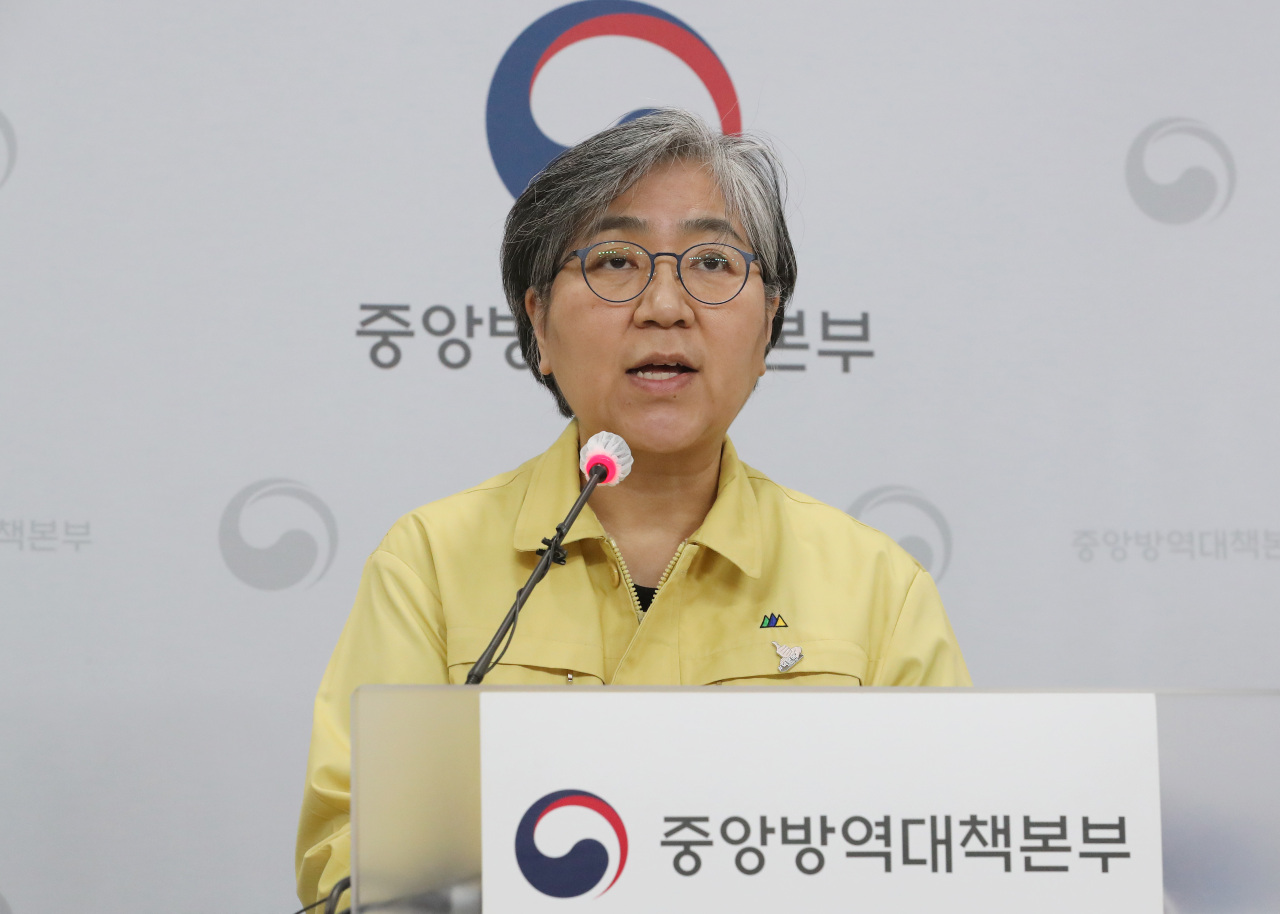Korea advises against AstraZeneca vaccine for those over 65
Official recommendation can change if more data supports it, government says
By Kim ArinPublished : Feb. 15, 2021 - 15:16

The AstraZeneca vaccine will not be used on those aged 65 and over for the time being, the Korean government committee for COVID-19 immunization said Monday, citing insufficient evidence on how well the vaccine works for the age group.
As Korea’s first batch of COVID-19 vaccines would be from AstraZeneca, changes to the country’s vaccination plan appear inevitable. The country had planned to give the first jabs to those over 65 alongside front-line health care workers.
“Priority should be given to older people, as they are at higher risk of severe COVID-19, and it is regrettable that they won’t be offered the first doses and the plan has to be tweaked. But we’ve decided that until more data becomes available on the effects of the vaccine in older people, it is best to withhold its use,” Korea Disease Control and Prevention Agency chief Jung Eun-kyeong, who heads the immunization committee, told a news briefing.
She explained that the AstraZeneca vaccines, which will be the first COVID-19 vaccines to be rolled out in Korea, will now be going to nursing home residents and workers who are younger than 65, instead of those older as originally planned.
According to the prime minister’s office, Korea is set to receive AstraZeneca vaccines for 750,000 people, or 1.5 million doses, in the last week of the February. Their rollout is expected to begin Feb. 26.
The prime minister’s office also said 117,000 doses of the Pfizer vaccine, which can cover 58,500 people, would be arriving in late February or early March. The jabs are distributed through COVAX, a World Health Organization-led initiative that ensures fair vaccine access for poor countries. Health care workers taking care of COVID-19 patients will be receiving the first shipment of Pfizer vaccines.
Experts worry that the change in the plan could meddle with Korea’s plan to vaccinate at least 70 percent of its people by no later than September, and also warn that the Monday announcement should not be misunderstood as though the vaccine would be ineffective for those over 65.
“It isn’t necessarily that the (AstraZeneca) vaccine won’t work, but there aren’t enough data yet,” said Dr. Jerome H. Kim, director-general at the International Vaccine Institute.
“We know that the vaccine generated reasonable levels of neutralizing antibody against COVID-19 in those over 65. We believe, but don’t have proof yet that this will correlate with protection.”
The AstraZeneca study pooled data from only 660 participants aged 65 or older, according to the United Kingdom government’s Jan. 28 report. This compares with Pfizer’s study published Dec. 31 that included around 16,000 participants aged over 55.
Kim of the IVI said that results from a US trial of the AstraZeneca vaccine involving some 30,000 people, which could be out in late March, might be able to change the official recommendation.
“If the US data shows protection in the over-65 -- great. If not, there will be a need to find other vaccines,” he said. “Given the timing of introduction of AstraZeneca vaccine in Korea and the hoped availability of data from the US Phase 3, the Korean government should be able to make a decision in the next month.”
Infectious disease expert Dr. Kim Woo-joo of Korea University said that proceeding with vaccinations when there is dearth of evidence could be risky. “Korea can either wait for more data from countries where vaccinations are already underway, or conduct local trials like Japan is doing,” he said.
He suggested that for instance, requesting more data from the UK, where the AstraZeneca vaccine has been widely used for the elderly since early January, was a possibility.
“Several European countries are ruling out administering the AstraZeneca vaccine to older people on account of limited data. But these are the countries that have the option of using other vaccines for the older group -- they can afford to get choosy. It’s not the same for us,” Kim said
“As the AstraZeneca vaccine makes up most of Korea’s early supplies, it would pose a considerable strain in the country’s immunization campaign if the vaccine won’t be given to the older population.”
Virologist Dr. Paik Soon-young of Catholic University of Korea agreed that in the absence of alternatives, restricting the use of AstraZeneca vaccine could further impede the country’s immunization efforts which had already suffered delays.
“I don’t reckon there are that many nursing home residents who are under the age of 65. The point of vaccinating the older people first was to reduce hospitalizations and deaths,” he said.
“Vaccines from other manufacturers won’t be available until much later. Korea might fall behind other countries by not being able to deploy the AstraZeneca vaccine per the plan set out in January as seeing that there’s no plan B.”
Paik also worried that the questions and indecisions surrounding the vaccine could erode people’s willingness to take it. “The AstraZeneca vaccine has undergone review by regulators including the European Medicines Agency and our own Food and Drug Safety Ministry. Although it may have shown lower protection, it can still be expected to save many lives.”
Referring to last week’s government announcement that whether to give the AstraZeneca vaccine to anyone older than 65 would be left up to individual doctors, he said, “There should be clear guidelines from the authorities on which vaccine will go to which group to inspire more confidence in both people giving and receiving the shots.”
By Kim Arin (arin@heraldcorp.com)







![[KH Explains] Hyundai's full hybrid edge to pay off amid slow transition to pure EVs](http://res.heraldm.com/phpwas/restmb_idxmake.php?idx=644&simg=/content/image/2024/04/18/20240418050645_0.jpg&u=20240419100350)







![[From the Scene] Monks, Buddhists hail return of remains of Buddhas](http://res.heraldm.com/phpwas/restmb_idxmake.php?idx=652&simg=/content/image/2024/04/19/20240419050617_0.jpg&u=20240419175937)

![[KH Explains] Hyundai's full hybrid edge to pay off amid slow transition to pure EVs](http://res.heraldm.com/phpwas/restmb_idxmake.php?idx=652&simg=/content/image/2024/04/18/20240418050645_0.jpg&u=20240419100350)

![[Today’s K-pop] Illit drops debut single remix](http://res.heraldm.com/phpwas/restmb_idxmake.php?idx=642&simg=/content/image/2024/04/19/20240419050612_0.jpg&u=)